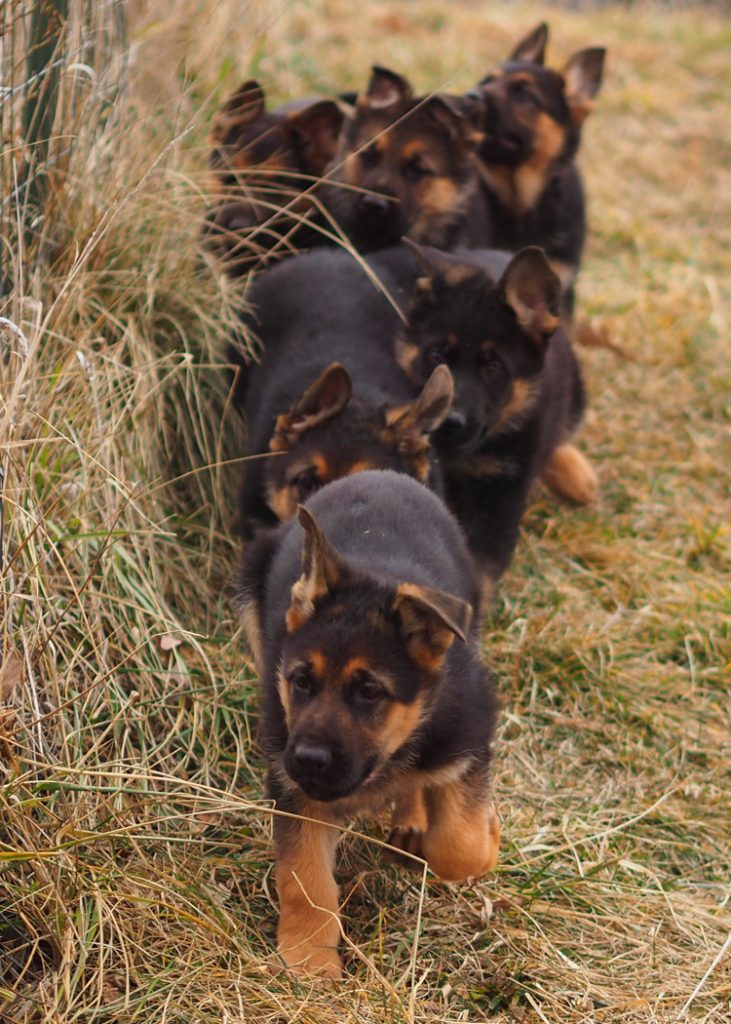By Abhai Kaul
“Balanced puppy exercise is vital for growth & development. Discover safe play routines to nurture their health & happiness. Learn more here.”
Exercising German Shepherd puppies is important for their physical and mental development, but it’s crucial to strike a balance to prevent overexertion during their growth phase. Here are some general guidelines:
Age to Start Exercising:
Puppies can begin light exercise and controlled play as early as 8 weeks of age. However, structured and intense exercise should be gradually introduced as their joints and bones are still developing. Consult your veterinarian for specific advice based on your puppy’s individual growth and health.
Optimal Exercise for Development:
- Socialization: Expose your puppy to various people, places, sounds, and experiences. Socialization is a critical aspect of development and helps them become confident and well-adjusted dogs.
- Moderate Walks: Short, controlled walks on soft surfaces (avoid hard pavements) can help with muscle development and build stamina. Start with 5-10 minutes and gradually increase as they grow.
- Interactive Play: Engage in interactive play sessions that encourage mental stimulation and physical activity. Games like fetch, tug-of-war, and hide-and-seek can be enjoyable and beneficial.
- Age-Appropriate Activities: Tailor activities to your puppy’s age and size. Avoid high-impact activities like jumping or agility training until their growth plates have closed, typically around 12-18 months.
- Basic Obedience Training: Incorporate training sessions into your puppy’s routine. Mental exercises are just as important as physical ones and help develop their cognitive skills.
- Structured Playdates: Arrange playdates with other well-mannered dogs to help with socialization and appropriate play behavior.
- Cognitive Challenges: Puzzle toys, treat-dispensing toys, and basic training exercises challenge their minds and provide mental enrichment.
Considerations:
- Avoid Overexertion: Puppies have bursts of energy, but overexertion can lead to joint issues. Always monitor your puppy’s energy levels and adjust activities accordingly.
- Growth Plates: German Shepherds have a period of rapid growth. High-impact activities during this time can potentially lead to developmental problems. Consult your veterinarian about safe exercise routines.
- Rest and Recovery: Puppies need plenty of rest and sleep to support growth. Avoid prolonged, strenuous activities that might tire them out excessively.
- Consult Your Veterinarian: Every puppy is unique, so consult your veterinarian for personalized guidance based on your puppy’s growth, health, and breed characteristics.
Remember, the goal is to provide a well-rounded and balanced approach to exercise that supports your German Shepherd puppy’s physical and mental development without causing harm.


